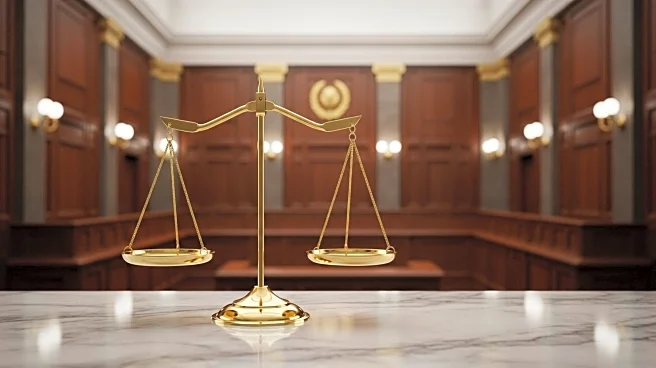What's Happening?
Federal courts are facing a potential funding crisis due to a looming government shutdown. Judge Robert Conrad, director of the Administrative Office of the US Courts, has warned that the judiciary will run out of money to continue operations as soon as next week if Congress fails to reach a spending deal. The judiciary has funds to sustain operations through October 3, but tight budgets and flat funding rates have reduced available balances needed to sustain paid operations during a lapse. The judiciary has also faced increased security challenges, including threats against federal judges and cyberattacks on the case management system. A proposed stopgap funding bill by House Republicans includes additional funding for Supreme Court justices but not for other federal judges.
Why It's Important?
The potential funding crisis for federal courts is significant as it could disrupt the judicial system's ability to function effectively, impacting the administration of justice across the country. The lack of funding could lead to delays in court proceedings, affecting defendants, plaintiffs, and the legal community. Additionally, the heightened security challenges pose risks to the safety of federal judges and the integrity of the judiciary's digital infrastructure. The situation underscores the need for Congress to address the judiciary's funding requirements to ensure the continued operation and security of the courts.
What's Next?
If Congress does not reach a spending deal, the judiciary may face operational disruptions, including partial paychecks and reduced services. Judiciary officials have urged Congress to provide more funding next fiscal year to enhance security capabilities and support federal defenders. The proposed stopgap funding bill may be debated further, with potential amendments to address the broader security needs of federal judges.









